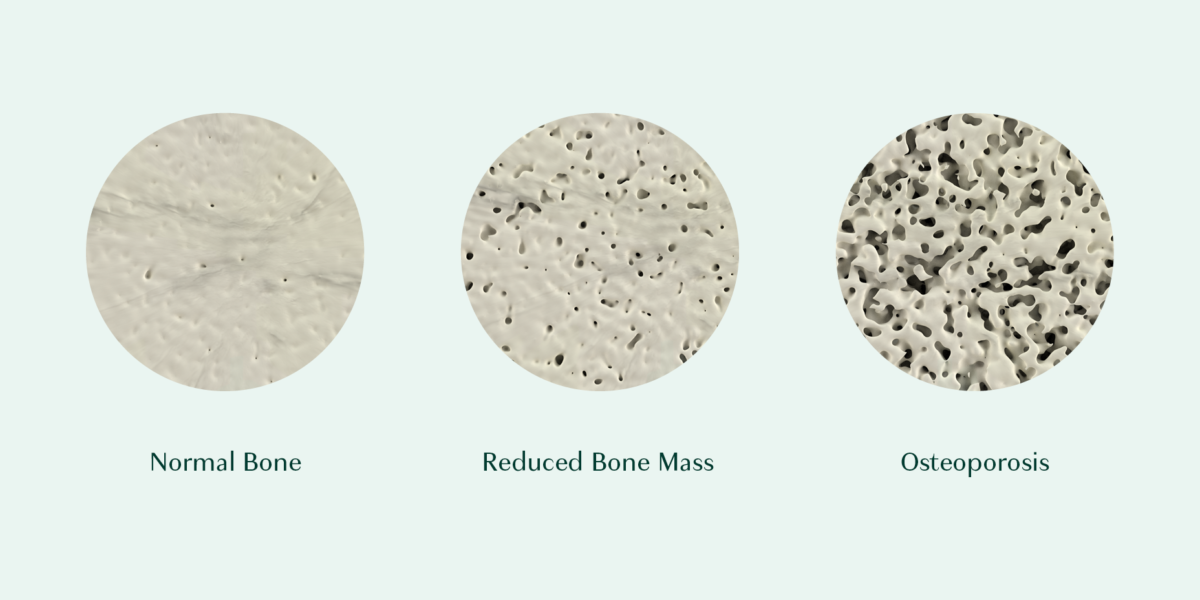Maybe you’ve heard that more people have calcium deficiency than not. So now you’re ready to get down to brass tacks and figure out how you can be among the minority of people who are getting all the calcium they need.
Smart move — especially considering that one study suggests as much as 68% of the American population suffers from calcium deficiency1.
Considering calcium is arguably the most important nutrient in your body, this is alarming and problematic.
More than 99% of your calcium is stored in your bones and your teeth, which supports skeletal function and structure.
The rest of the calcium in your body is used for other critical functions such as:
- muscle contraction
- hormone secretion
- blood vessel contraction and expansion
- sending messages through the nervous system
- activating the enzymes involved in glycogen metabolism
- activating a number of the vitamin D-dependent hormones clotting factors
What Happens When Your Calcium Levels Are Low
In fact, calcium is so important your body will pull a Bonnie and Clyde on you and steal it to beef up the supply. You see, if your body doesn’t get enough calcium to keep its base functions running smoothly, it will leach calcium from your bones to make up for the shortfall (yikes!).

If this goes on for long enough, your bone mineral density will deplete to the point of developing disorders like:
Osteopenia
Bone loss or bone thinning beyond the normal range is known as osteopenia. It’s a precursor to osteoporosis and is officially marked with a T-score between -1 and -2.49. T-scores are calculated as a part of DEXA scans, which measure bone mineral density.
Osteoporosis
Excessive bone density loss resulting in a T-score of -2.5 or lower is categorized as osteoporosis. Bones become weak and brittle and put you at an increased risk of fracture.
Both osteopenia and osteoporosis are signs of calcium deficiency disease.
The FDA states that “Adequate calcium and vitamin D throughout life, as part of a well-balanced diet, may reduce the risk of osteoporosis.”

Bone Loss Quiz
AlgaeCal provides the industry’s leading supplements and support designed to meet you at every stage of your bone-health journey. Find the right choice for you.
What Is Hypocalcemia?
Calcium deficiency disease, known as hypocalcemia, can develop when the blood has low levels of calcium. Unfortunately, it has become a global health problem. People around the world are simply not getting enough calcium from their diets.

What Causes a Calcium Deficiency?
As you know, calcium deficiency doesn’t happen overnight. It creeps in and snatches calcium as you go about your business. Left undetected, it’ll do this for years. But you’re on to that fiend. You even know its root causes, so you’re ahead of the game. Right? Well, if a reminder wouldn’t hurt, here are the causes to keep in mind:
Age
Infants and children absorb as much as 60% of the calcium they consume2. But once you reach adulthood, your absorption slowly decreases to about 25%.
Lack of Calcium
This is a bit of an obvious one, but low calcium intake over a long period of time is a primary cause of calcium deficiency. It’s recommended that adults over the age of 19 consume between 1,000–1,200 mg every day, depending on your gender.
Prescription Medications
Certain medications can interfere with your body’s ability to absorb nutrients. And they may decrease calcium absorption3. For a more thorough look at drugs that can cause bone loss, check out our article on the top 12 prescription drugs that cause osteoporosis.
Hormonal Changes
A decline in estrogen during menopause causes women to lose bone density more rapidly. Postmenopausal women have about one-tenth of the estrogen levels that premenopausal women have. Genetic factors, dietary intolerance, and malabsorption can also contribute to calcium deficiency. Since calcium is so critical throughout the body, low calcium symptoms can show up anywhere. And they can manifest in many different ways.
Malabsorption
Calcium absorption refers to the amount of calcium absorbed from the digestive tract into your body’s circulatory system. Another term for this is calcium bioavailability. Calcium absorption can be affected by the amount of calcium in your body, your vitamin D, and K2 levels, your magnesium and trace mineral status, age, pregnancy, and even certain plant substances in your diet. The amount of calcium consumed at a time can also affect absorption. For example, the efficiency of calcium absorption decreases as the amount of calcium you consume at a meal increases.
Vitamin D
Calcium and vitamin D work really well together. When you take vitamin D, you increase your body’s ability to absorb calcium effectively. Lara Pizzorno, the author of Your Bones, says, “Less widely known is that vitamin D also boosts the expression of the vitamin K-dependent proteins. So when you take supplemental vitamin D, you are increasing the amount of calcium available in your body and, therefore, your need for vitamin K.” In other words, vitamin D increases the amount of calcium you absorb, but in turn, also increases your need for vitamin K.
Vitamin K2
Don’t mix this up with vitamin K1. Vitamin K2 has nothing to do with blood clotting factors. And it’s very difficult to get without supplementation. It’s not in leafy greens like K1 and is found only in tiny amounts in eggs and cheeses. Its main role is to regulate calcium deposition. Meaning, vitamin K2 cleans calcium deposits from your arteries and moves it to your bones.
Magnesium
It’s reported that as many as 80% of Americans are magnesium-deficient! Deficiency of this mineral affects bone building, bone fragility, and alters calcium metabolism and the hormones that regulate calcium.
What Are Some Signs of Calcium Deficiency?
Want in on a little secret? Okay — lean in. Your body’s a snitch. That’s right. It’ll tell your business in a minute. Hungry? Your tummy grumbles. Tired? Your mouth yawns. Your body constantly sends you signals to clue you in on what’s happening inside. And when it comes to calcium deficiency, your body sends a host of warning signs. If left untreated, calcium deficiency symptoms in adults will vary from mild to severe.
Minor symptoms can include:
- Numbness
- Tingling fingers
- Muscle cramps
- Lethargy
- Poor appetite
- Weak or brittle fingernails
- Difficulty swallowing
- Fainting
More severe symptoms can include:
- Mental confusion, irritability, depression, and anxiety
- Tooth decay
- Insufficient blood clotting
- Bone fractures
- Osteopenia or osteoporosis
- Growth and development delays in children
- Heart problems involving blood pressure and heart rhythms
So all these signs are nice to know, but they still don’t tell you if you have a calcium deficiency. Talk to your doctor about testing your calcium levels so you’ll have an idea of how much more you need. Armed with that info, you’ll be a step closer to serving an eviction notice on calcium deficiency.
How Is Calcium Deficiency Diagnosed?
Considering many calcium deficiency signs are obvious, your doctor will first make a clinical assessment of any symptoms, such as:
- abnormal heart rhythm
- brain fog
- cataracts
- fatigue
- light-headedness
- muscle spasms (Trousseau’s Sign4)
- intracranial pressure5 (pressure buildup inside your skull)
Next, your doctor will look at your blood work to check your calcium, vitamin D, and parathyroid levels.
Hey, no one likes needles. But if you want to let calcium deficiency know its days of breaking bones and taking names are over, roll up that sleeve. When that’s over, your doctor will get into the less-than-sexy stuff and ask about your medical history. Hereditary conditions can play a role in developing Hypocalcemia and osteoporosis. They may also recommend a DEXA scan to assess your bone mineral density.
How to Prevent and Address Calcium Deficiency
Now if all this talk about calcium deficiency makes you wish you could time travel back to your 20s, don’t despair. It’s not difficult to raise your calcium level.
Generally it involves adding more calcium to your diet. But your calcium deficiency treatment plan will ultimately depend on the severity of your deficiency. So it should be discussed with your doctor.
As far as prevention goes, it’s never too early to start. Focus on eating calcium-rich foods with plenty of bone-friendly nutrients. And definitely check out the recipe section of our blog for quick, easy, and delicious bone-healthy recipes the whole family can enjoy.

And if you’re really serious about kicking calcium deficiency to the curb, take a daily calcium supplement like AlgaeCal Plus. It’s a plant-based calcium that naturally contains all 13 essential bone-building nutrients. AlgaeCal Plus is specially formulated with magnesium, vitamin D3, vitamin K2, and boron. As you may know, vitamin D3 enables our active absorption of calcium (which accounts for 85% of the calcium we absorb). And magnesium helps the body properly absorb and utilize calcium and vitamin D. Moreover, vitamin K2 activates the enzymes that usher calcium into our bones and keep it out of our arteries. And boron optimizes the use of the estrogen women still produce after menopause.
So when combined with Strontium Boost, AlgaeCal Plus skyrockets your bone-building potential to the next level. Both are formulated to work together perfectly as a team to increase bone density, year after year. Basically, it’s like time travel in a bottle — well, at least for your bones.
References
1. Diriba B. Kumssa, Edward J. M. Joy, E. Louise Ander, Michael J. Watts, Scott D. Young, Sue Walker, and Martin R. Broadley. “Dietary calcium and zinc deficiency risks are decreasing but remain prevalent.” Scientific Reports (2015). doi: 10.1038/srep10974
2. https://ods.od.nih.gov/factsheets/Calcium-HealthProfessional/#en51
3. Uwe Gröber and Klaus Kisters. “Influence of drugs on vitamin D and calcium metabolism.” Dermato Endocrinology (2012). doi: 10.4161/derm.20731
4. Habib U. Rehman, MBBS and Shane Wunder, MD. “Trousseau sign in hypocalcemia.” Canadian Medical Association Journal (2011). doi: 10.1503/cmaj.100613
5. Venessa L. Pinto; Prasanna Tadi; Adebayo Adeyinka. “Increased Intracranial Pressure” (2021).






Jacquelyn
November 3, 2015 , 10:46 pmCan u order this by chk.? My husband won’t let me use a debit or credit card. He will only let me pay by a personal chk. or a money order or cashiers chk.